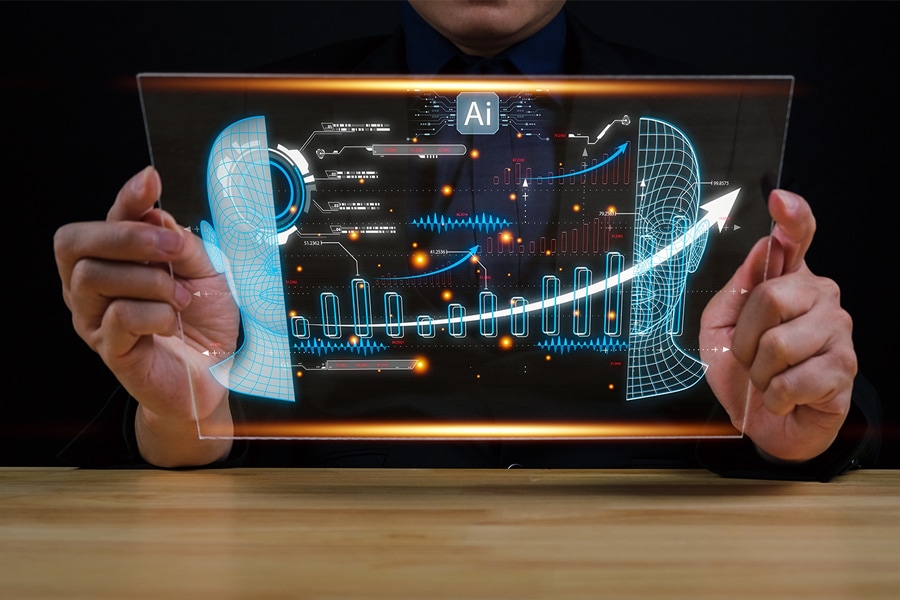
What should leaders make of the latest AI?
As ChatGPT flaunts its creative capabilities, two experts discuss the promise and pitfalls of our coexistence with machines
 AI models like ChatGPT excel at synthesizing vast troves of data, the jobs of knowledge workers are the most likely to be affected, including accountants, attorneys, interpreters, and journalists.
Image: Shutterstock
AI models like ChatGPT excel at synthesizing vast troves of data, the jobs of knowledge workers are the most likely to be affected, including accountants, attorneys, interpreters, and journalists.
Image: Shutterstock
The latest artificial intelligence tools like ChatGPT are already capable of developing a travel itinerary, generating a simple business plan, and writing marketing copy—and the technology is getting better.
Large-scale language models like ChatGPT-4 are trained on massive amounts of human writing, which in turn makes them very good at sounding human. While they lack the kind of logical understanding of the world that even young children possess, they are expert pattern-matchers, predicting which word will come next based on distributions they’ve calculated around how often words co-occur.
“These distributions have such powerful and accurate probabilities because of how expertly they’ve been trained on so much data,” says Dave Ferrucci, the founder, CEO, and Chief Scientist of the hybrid AI company Elemental Cognition. “They produce these really coherent linguistic structures.”
So what should we make of this technology—as business leaders and as citizens?
In a recent The Insightful Leader Live webinar, Brian Uzzi and Dave Ferrucci offered their perspectives on how AI might change our working lives and our society. Uzzi is a professor of management and organizations at Kellogg, while Ferrucci, who started and led the IBM Watson team through its landmark Jeopardy success in 2011, is an adjunct professor of management and organizations at Kellogg.
[This article has been republished, with permission, from Kellogg Insight, the faculty research & ideas magazine of Kellogg School of Management at Northwestern University]







